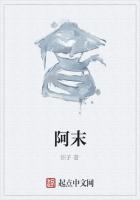The Duke of York's intrigues.--My Lady Chesterfield and his royal highness--The story of Lady Southesk's love.--Lord Arran plays the guitar.--Lord Chesterfield is jealous.--The countess is taken from court.--Mistress Margaret Brooke and the king.--Lady Denham and the duke.--Sir John goes mad.--My lady is poisoned.
The while his majesty devoted himself to pleasure and intrigue, neglectful of affairs of state, and heedless of public scandal, his brother of York, whose disposition was not less amorous, likewise followed the bent of his inclinations. Soon after her appearance at court he professed himself in love with the beautiful Elizabeth Hamilton, whom to behold was to admire. But the duke being a married man, and she a virtuous woman, he dared not address her on the subject of his affection, and was therefore obliged to confine the expression of his feelings to glances. These she refused to interpret; and he, becoming weary of a pursuit which promised no happy results, turned his attentions to the Countess of Chesterfield, who seemed in no way loath to receive them.
This charming woman had married my Lord Chesterfield in compliance with a family arrangement; and discovered too soon she had no place in the heart of him whose life she shared. His coldness to her was only equalled by his ardour for Lady Castlemaine, whose lover he continued to remain after his marriage. The affection his wife had offered and he had repulsed, in the dawn of their wedded life, changed by degrees to disdain and hatred.
Now as chamberlain to the queen my Lord Chesterfield had, apartments in the palace, by reason of which the countess became an habituee of the court. The moral atmosphere of Whitehall was not calculated to strengthen her conjugal virtue, but its perpetual gaiety was destined to dissipate her sense of neglect.
It was not possible for a woman endowed with so much beauty, and possessed of such engaging manners, to be disregarded, in a court entirely devoted to love and gallantry; and accordingly she soon became an object of general admiration. This was by no means pleasing to my Lord Chesterfield, who, though he had wilfully repulsed her affections, was selfishly opposed to their bestowal upon others. Accordingly he became watchful of her conduct, and jealous of her admirers.
Prominent amongst these were James Hamilton and the Duke of York.
The former was her cousin, and her husband's confidant, in consequence of which my lord failed to associate him with the suspicion he entertained towards all other men who approached her: the latter he regarded with the uttermost distrust. His royal highness had before now disturbed the happy confidence which husbands had placed in their wives, as my Lord Carnegy could testify.
The story which hangs thereby had, a little while before the duke fell in love with Lady Chesterfield, afforded vast amusement to the court, and was yet fresh in the recollection of many. It happened that his royal highness became enamoured of my Lady Carnegy, daughter of the gallant Duke of Hamilton, and friend of the gay Lady Castlemaine. Lady Carnegy loved pleasure mightily, painted her face "devilishly," and drove in the park flauntingly.
She was endowed with considerable beauty of form and great tenderness of heart, as many gallants acknowledged with gratitude. Now when the Duke of York made advances to her, she received them with all the satisfaction he could desire; an intimacy therefore followed, which she was the better able to entertain on account of her husband's absence in Scotland.
Whilst my Lord Carnegy was in that country, his father, the Earl of Southesk, died, and he succeeded to the title and estates. In due time the new earl returned to London and his wife, and was greeted by rumours of the friendship which in his absence had sprung up between my lady and the duke. These, as became a good husband, he refused to believe, until such time as he was enabled to prove their veracity. Now, though his royal highness did not cease to honour my lady with his visits on her husband's return, yet out of respect to decorum, and in order to silence scandalous tongues, he from that time invariably called on her accompanied by a friend.
It therefore came to pass that one day he requested an honest, foolish Irishman, **** Talbot, afterwards Duke of Tyrconnel, to attend him in his visit to the lady. He could scarcely have selected a man more unfitted to the occasion, inasmuch as Talbot was wholly devoid of tact, and possessed a mind apt to wander at large at critical moments. He had but recently returned from Portugal, and was not aware my Lord Carnegy had in the meantime become Earl of Southesk, nor had he ever met the lady who shared that title until introduced to her by the duke. When that ceremony had been duly performed and a few sentences interchanged between them, Talbot, acting on instructions previously received, retired into an ante-room and took his post at a window that he might divert himself by viewing the street, and observing those who approached the house.














